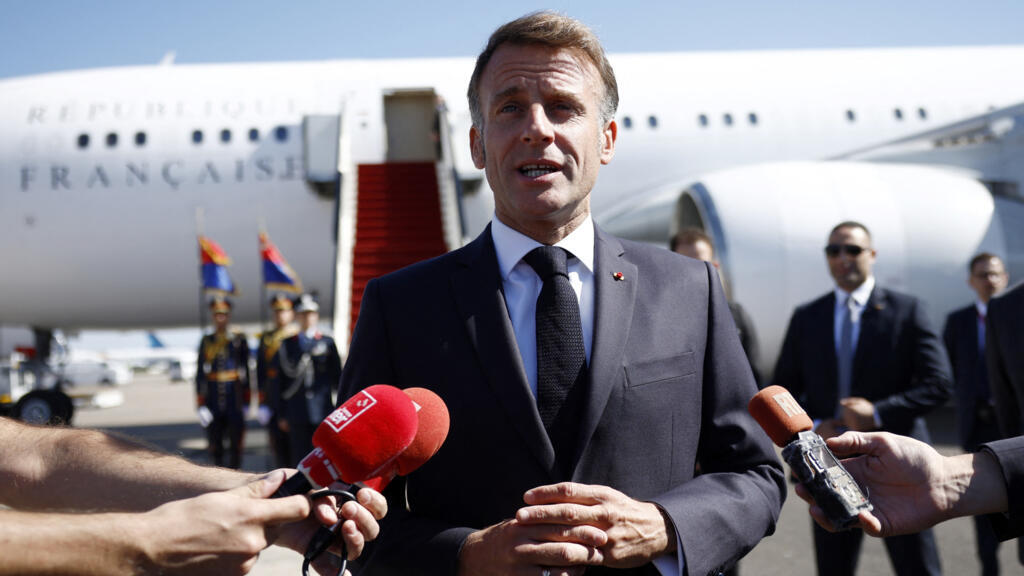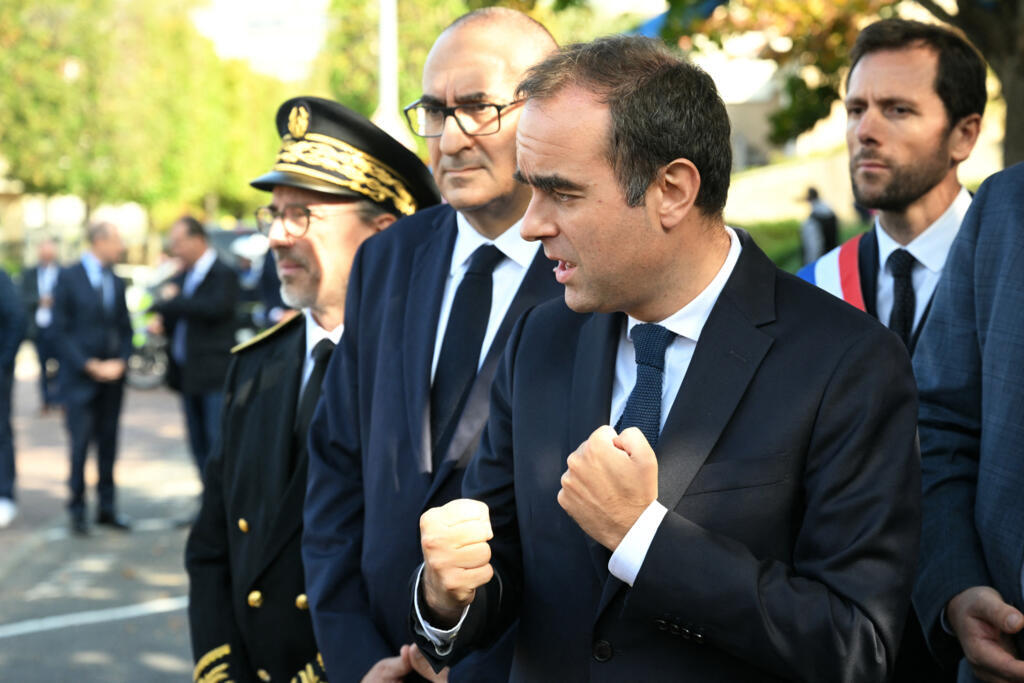
French President Emmanuel Macron said on Monday he would continue to serve to ensure stability in the country, ignoring repeated calls by the opposition for him to resign amid France’s worst political crisis in decades.
Macron spoke as reinstated Prime Minister Sébastien Lecornu’s new government took office under mounting pressure to produce a 2026 budget and calm the turmoil that has rattled investors and business leaders.
“Never forget that the mandate given by the French people is to serve, to serve and serve, and to provide answers to the questions of everyday French people, and to do everything possible for the independence of France,” Macron told reporters in Egypt, days after reappointing Lecornu as head of government.
“That is the only thing that matters. The rest is the government’s business ... I will continue to ensure stability.”
Macron's second and final term ends in 2027.
Lecornu unveiled his new cabinet on Sunday night, keeping most key ministers in place despite pledging “renewal and diversity” when he was reappointed prime minister on Friday.
“A mission-driven government has been appointed to provide France with a budget before the end of the year,” Lecornu wrote on X on Sunday.

The hard-left France Unbowed (LFI) said it would file a motion of no confidence on Monday, as did the far-right National Rally, meaning the new government will face a challenge before the end of the week.
The Socialists have not committed one way or another.
The new government must present a 2026 draft budget before a Tuesday deadline, giving parliament the constitutionally-required 70 days to examine the plan before year's end.
Debate over the budget toppled Lecronu's two predecessors.
New government, same faces
Lecornu, whose previous cabinet lasted 14 hours before he quit last week, reappointed Roland Lescure, a close ally of President Emmanuel Macron, as finance minister, a key role in preparing the budget.
Foreign Minister Jean-Noel Barrot and Justice Minister Gerald Darmanin also kept their posts.
"A single imperative guides my decisions: to serve my country and the French people," Darmanin posted on X. "Without renouncing any of my convictions, I am therefore taking leave from all partisan activity."
The most notable change in the cabinet was the new Interior Minister, Paris police chief Laurent Nunez, who replaces Bruno Retailleau, leader of the right-wing Les Republicans (LR) party, which said it would not participate in a new government.
Former Prime Minister Elisabeth Borne was replaced by civil servant Edouard Geffray as Education Minister, and outgoing Labour Minister Catherine Vautrin took on the defence portfolio.
Monique Barbut, the former director of the French World Wide Fund will lead the ministry of environmental transition.
Rachida Dati, who is set to stand trial on corruption charges next year, also retained her post as Culture Minister.
Looming budget deadline
Macron reportedly wanted a government named before he left for Egypt late Sunday to support the Gaza ceasefire deal brokered by the United States – a trip that could delay the presentation of the draft budget.
Lecornu has pledged to work with all mainstream political movements to get the budget passed, but he is under pressure from all sides.
The Socialists want a repeal of Macron's pension reform and a re-introduction of a wealth tax, which the right has said is a red line.
Lecornu signalled potential flexibility on the pensions issue on Saturday, saying "all debates are possible as long as they are realistic."
The Republicans, previously allies, said they would only cooperate with the new government on a "bill-by-bill" basis.
The far-right National Rally, the largest party in parliament, has vowed to vote out any new Lecornu government.
(with newswires)







